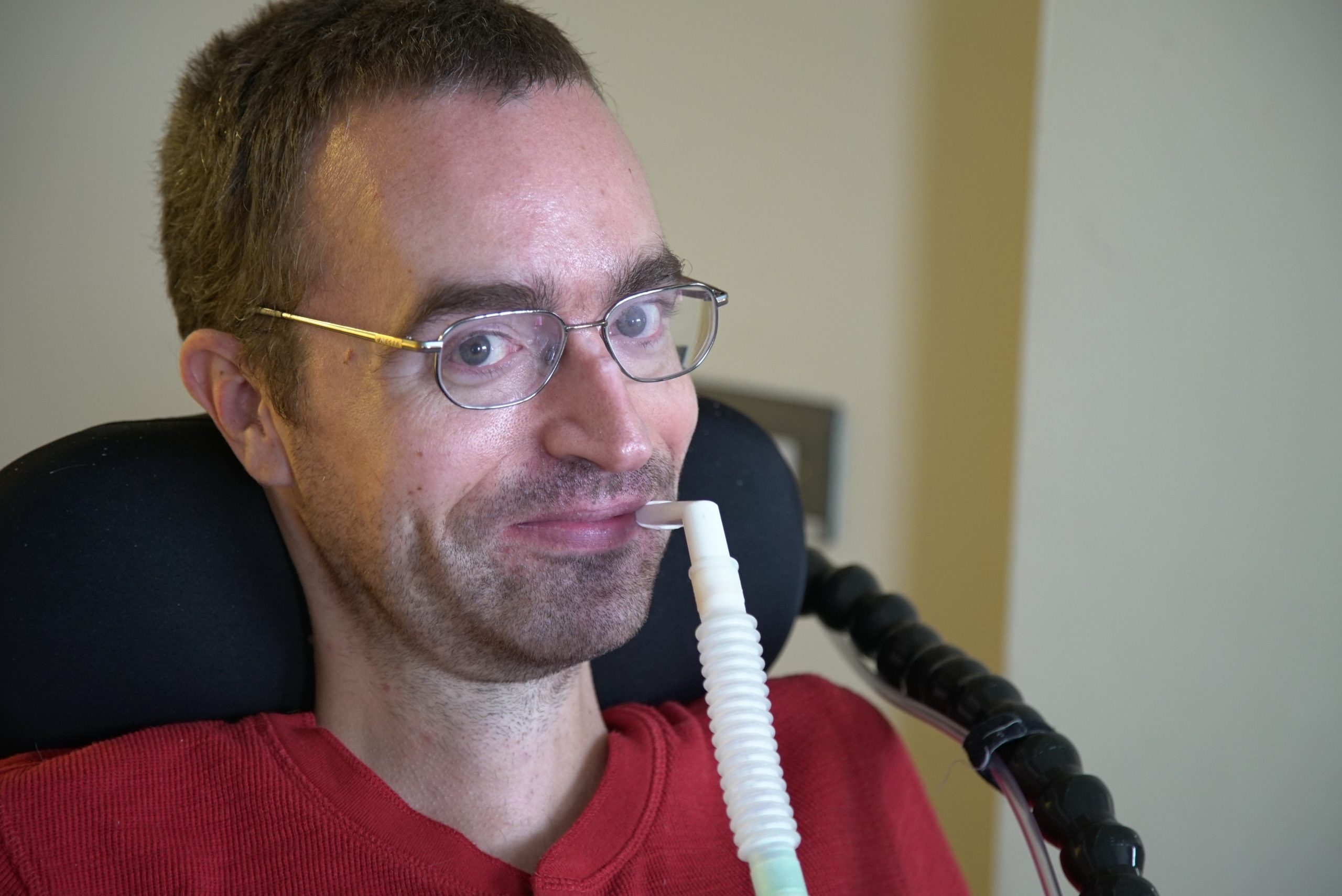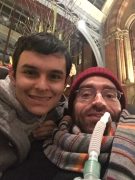Living with DMD: Inspiring each other’s futures

Diagnosed with Duchenne muscular dystrophy (DMD) at three years old, Dr Jon Hastie grew up never thinking about the future – until one day he discovered he actually had one. Now in his 30s, he is determined to make sure others know they do too.
He spoke to pharmaphorum about living with the condition and how his charity, DMD Pathfinders, and his Facebook group, have helped create networks of inspiration.
Much has changed since Jon was diagnosed with DMD at just three years old. He, like many others in his position, is living longer and more independently than many ever thought possible.
He grew up wanting to live as ‘normal’ a life as possible, following in his brother’s footsteps by going to university, but never really having one eye on the future.
Inspiration
“I really enjoyed academia, but equally I didn’t know what other options I would have in terms of my life, so I just carried on going with what I was enjoying,” said Jon, who ended up staying at the University of Essex to complete his master’s degree in environmental studies and PhD in government.
“I never really thought too far ahead. It was always like ‘I hope I live long enough to finish my degree’, and then when you get to the end of that it’s like ‘I’m not dead yet, so what next?’ It sounds morbid, but it was really about being ever present in your life, because you knew it might get cut short at any time.”
As he was finishing his doctorate, though, he saw something that changed his whole outlook on life and cemented his belief in peer support – a magazine article about a man in his 40s with DMD.
“That was quite instrumental in changing my view. Suddenly I thought I might have a bigger future here than I realised, and that was really empowering for me to move forward in my life,” said Jon, adding that it gave him the confidence to fulfil his dream of visiting the USA.
“I sailed over there on the Queen Mary II and spent two weeks in the States, travelling around. It was a really fantastic trip.”
On the way back, he decided he wanted to meet other people living with DMD and make a film that could inspire others in the same way that he had been by that magazine article.
Jon explained: “I guess I wanted other people to be able to have that same inspiration to change their own lives and to think about their futures. I wanted to make sure more people knew there were adults out there not only living longer, but also achieving.
“I just wanted it really to inspire the next generation of young people with Duchenne.”
Most of A Life Worth Living was filmed over two weeks, and Jon and his crew visited five men in the UK and a pair of brothers in the Netherlands. It was, he said, “a mammoth undertaking”, but thoroughly enjoyable.
“We wanted to get coverage among the general population; but for me the biggest thing was that it would actually reach people with Duchenne and their families and maybe change their mind about what the future might hold,” he went on.
The power of peer-to-peer support
As Jon’s story shows, the value of speaking to others in the same position cannot be underestimated and the internet has opened previously unimaginable communication opportunities.
“I’ve always been inspired by others with Duchenne and the internet has allowed me to find more people. It gives you a bigger sense of community: it’s not just one person who’s your inspiration, it’s a whole group of people,” he enthused, adding that a Facebook group for people with DMD that he set up in 2013 now has more than 350 members from all around the world.
“Having a peer support group helps you tap into other people’s solutions to the daily problems you face – simple things like dealing with ventilators to assist your breathing, or just having a haircut.
“Pooling knowledge and experience with others just makes a tremendous difference to how you can manage your own health.”
DMD Pathfinders, which Jon set up with two others living with Duchenne, is an extension of that. It is a user-led organisation that promotes choice, control and quality of life for teenagers and adults with the condition in the UK.
“We see our role as raising awareness of adults with Duchenne,” explained Jon, adding that it was about encouraging people with the condition to embrace their future and aim higher.
While the group, which is led by a group of volunteers and supporters, does advocate for access to new treatments, finding a cure is not its main purpose.
The future
Jon said: “We are saying ‘great, let’s have access to treatments that may become available, but in the meantime how do we live our lives well?’
“We know it is possible to have a good quality of life with the right support and, for us, it’s about helping people to do that as far as possible.”
While he is hopeful that medical progress will bring new treatments, Jon said, no matter what happens, holistic thinking around making sure everyone has the best possible quality of life will be vital.
“People might want to believe there will be a cure for Duchenne and that’s it, there’ll be no more problems.
“I don’t think it’s going to be quite that straightforward, but I do think it’s going to be a lot better than it is now.”
Determined
Jon’s motto is ‘never give up, never give in’. It embodies the way he lives his life and is the inspiration he passes to others through his work.
“I have a good life. I’ve got two part-time jobs, I’m doing a voluntary role, and I have a PhD as well. I’ve got friends who I go out with and I’ve got a partner and we are getting married in August.”

Jon Hastie (right) and his partner Tomas.
Jon says he oversees organising the wedding and all the necessary details.
“My partner is more the concepts and ideas man, so he leaves it to me to take charge of all the details,” he joked.
“I’m very happy with my life and, although I would rather not have Duchenne, I’ve accepted that I do.”
He hopes that, through his work, others with DMD can learn to live their lives well, too.
About the interviewee:
Dr Jon Hastie is the CEO of DMD Pathfinders, a user-led organisation of adults with Duchenne. He co-founded DMD Pathfinders in 2014 after working for several years on a transition programme for young people with Duchenne and has been a co-researcher on key social studies of adults with DMD. As an adult with Duchenne himself he has a detailed knowledge of the condition and its physical, social and psychological impacts in adulthood.
For more on DMD Pathfinders, click here.
This article is part of a DMD Spotlight series produced by pharmaphorum in conjunction with Santhera Pharmaceuticals.
Read other articles in this series:











